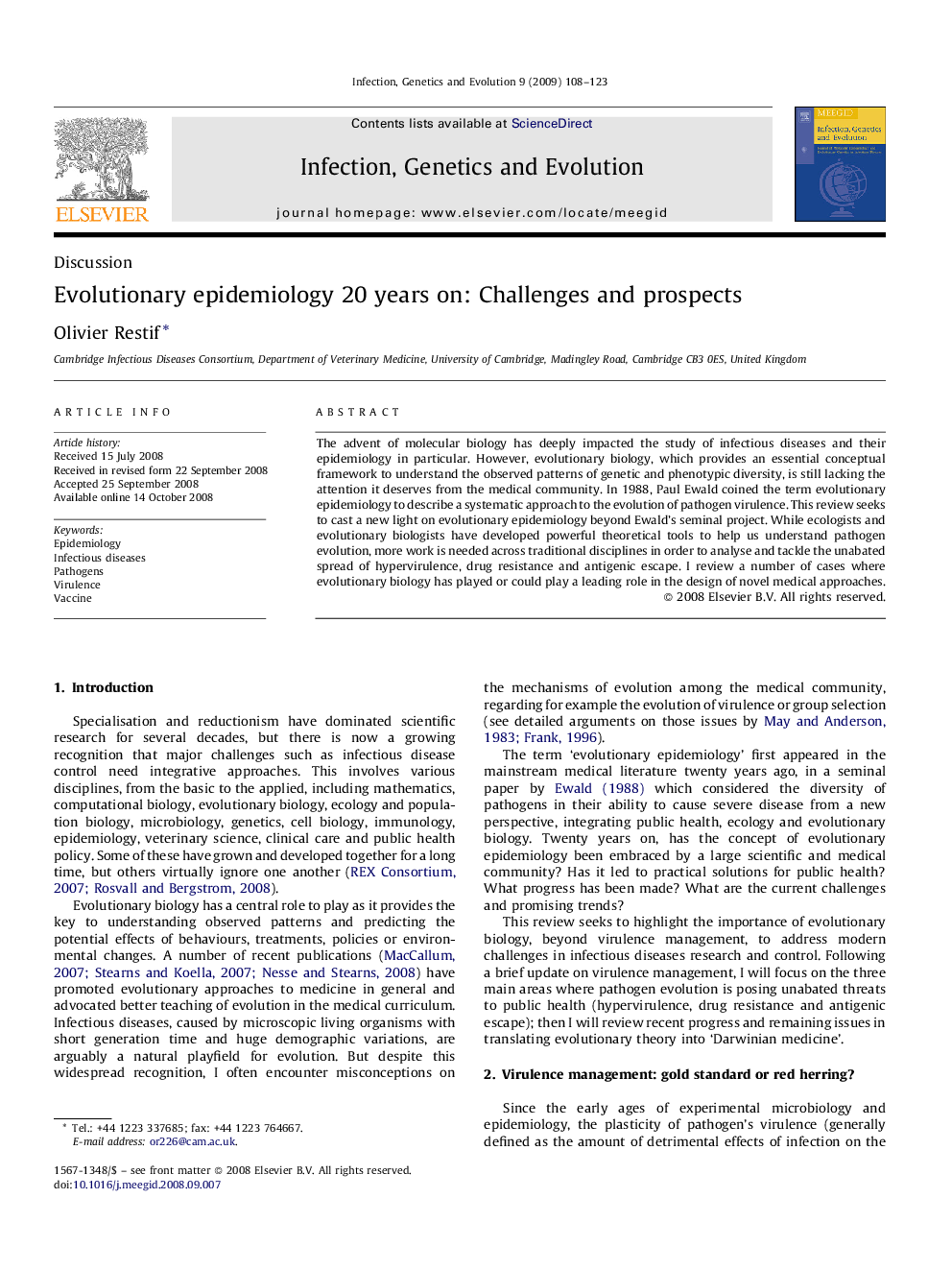| Article ID | Journal | Published Year | Pages | File Type |
|---|---|---|---|---|
| 2823467 | Infection, Genetics and Evolution | 2009 | 16 Pages |
The advent of molecular biology has deeply impacted the study of infectious diseases and their epidemiology in particular. However, evolutionary biology, which provides an essential conceptual framework to understand the observed patterns of genetic and phenotypic diversity, is still lacking the attention it deserves from the medical community. In 1988, Paul Ewald coined the term evolutionary epidemiology to describe a systematic approach to the evolution of pathogen virulence. This review seeks to cast a new light on evolutionary epidemiology beyond Ewald's seminal project. While ecologists and evolutionary biologists have developed powerful theoretical tools to help us understand pathogen evolution, more work is needed across traditional disciplines in order to analyse and tackle the unabated spread of hypervirulence, drug resistance and antigenic escape. I review a number of cases where evolutionary biology has played or could play a leading role in the design of novel medical approaches.
